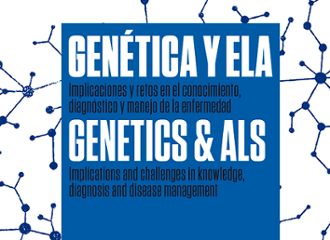Research projects
Start of main content
Programmable hybrid biomaterials via click chemistry: Sponge biomimetic tubules as chemobrionic scaffolds for cell culture
22st national competition for scientific and technical research
New materials: fundamentals and applications
Senior Researcher : David Díaz Díaz
Abstract
In this project, we propose that hydrothermal vents acted as the womb and cradle of primitive life. We suggest that ions released by these vents self-assembled with biopolymers produced by cyanobacteria, forming structures known as sponge/stromatolite mimetic tubules (SMT). These SMTs could have served as templates for the colonization and evolution of unicellular organisms into more complex forms, such as marine sponges. To explore this hypothesis, model SMTs will be fabricated via chemobrionic chemistry, generating silicate-phosphate tubules intercalated with biopolymers. The surface of the SMTs will be functionalized using advanced techniques such as click chemistry and bioconjugation (including biotin-avidin chemistry) to optimize cell adhesion. This hypothesis will be tested by culturing the choanoflagellate cell line Salpingoeca rosetta on SMTs, and the resulting assemblies will be analyzed using cutting-edge techniques such as laser confocal microscopy and live imaging. Additionally, the potential of SMTs in tissue engineering will be evaluated as scaffolds for 3D cultures of human fibroblasts. Ultimately, the synthesized SMTs could not only be applied in biomedicine but also represent an innovative educational tool to foster undergraduate student interest in frontier research. The proposed research has the potential to revolutionize our understanding of three key areas of science: the origin of life, bioengineering, and biomolecular materials. By recreating environments that may have existed at the dawn of life on Earth, this work may offer a unique window into the evolutionary mechanisms that transformed unicellular organisms into complex multicellular structures. Furthermore, the developed scaffolding technology not only contributes to the design of advanced biomimetic systems but also offers practical solutions to challenges in tissue engineering and the development of personalized implants. Finally, the innovative tools and materials derived from this research have the potential to significantly influence the design of functional materials, from medical devices to sustainable technologies in various interdisciplinary fields.
-
 Activities related
Activities related
-
 Projects related
Projects related
-
 News related
News related
-
 Publications related
Publications related
 Activities related
Activities related
-
26
Jun
2024
Conferencias La aventura de la ciencia Madrid, Miércoles 26 de junio de 2024, 19:00 horas
-
13
Feb
2025
17th edition. Cycle of conferences and debates in science Digital Twins: Technological Advances and Application Opportunities Madrid, Thursday, 13 February 2025, 17:30 hours
-
18
Feb
2025
Session New Therapies for the Inflammation Treatment Madrid, Feb 18th, 2025, Tuesday. 4PM
 Projects related
Projects related
- Development and Application of saRNAs for the Treatment of Rare Monogenic Diseases 2024 Senior Researcher : María Luisa Cayuela Fuentes
- CHANNELOSOME RESCUING PEPTIDES IN THE TREATMENT OF ARRHYTHMIAS IN INHERITABLE HEART DISEASES 2024 Senior Researcher : José Jalife Research Centre or Institution : Centro Nacional de Investigaciones Cardiovasculares (CNIC). Madrid
- Mechanisms for sustaining mitochondrial genome integrity and function during hematopoiesis. 2024 Senior Researcher : Ana Victoria Lechuga Vieco Research Centre or Institution : Fundació Clínic per a la Recerca Biomèdica. Hospital Clínic. Barcelona
 News related
News related
 Publications related
Publications related


End of main content



